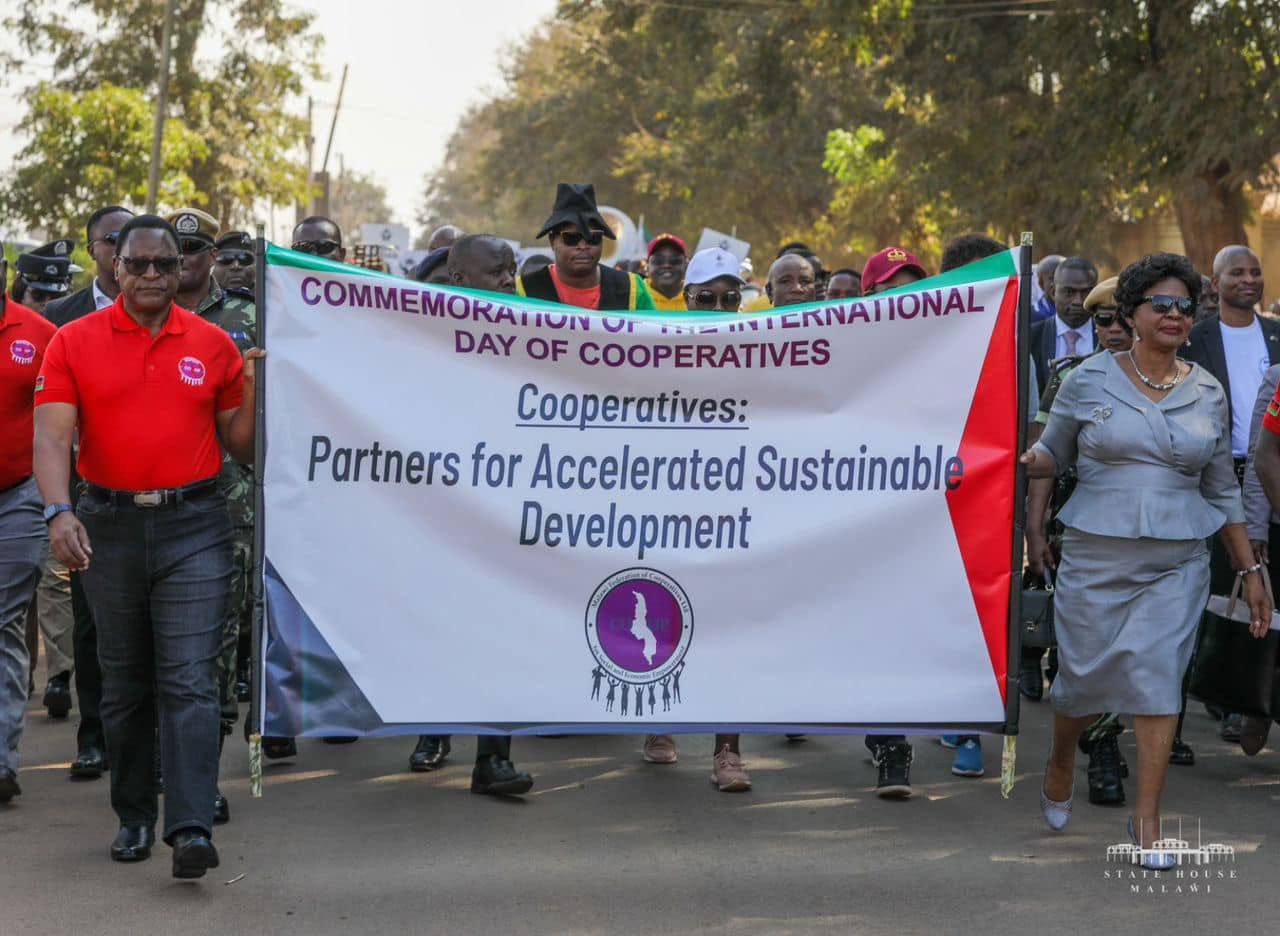Malawi President Lazarus Chakwera Calls for Increased Support for Cooperatives
President Lazarus Chakwera emphasizes the importance of cooperatives in promoting socioeconomic development and reducing poverty in Malawi.
LILONGWE, MALAWI — President Lazarus Chakwera has underscored the significance of cooperatives in advancing the goals of poverty eradication and inclusive development in Malawi, writes Winston Mwale.
Speaking during the commemoration of the International Day of Cooperatives in Lilongwe on Saturday, Chakwera highlighted the role of cooperatives in creating sustainable livelihoods and empowering communities.
In his address, Chakwera emphasised the pivotal role of unity in economic activities in driving the nation towards inclusive wealth and self-reliance, aligning with the Sustainable Development Goals and the Malawi Vision 2063.
He stressed the need for collaboration between the government, the private sector, and cooperatives to empower existing cooperative societies and facilitate the establishment of new enterprises.
"The cooperative model is one intervention that my administration has fully embraced to pull people out of poverty and build resilient communities," Chakwera stated.
Recognising the potential of cooperatives to generate decent employment opportunities, he highlighted the importance of fostering inclusive socio-economic development for all Malawians.
Chakwera, who recently joined the United Civil Servants SACCO, expressed his confidence in cooperatives as a viable approach to fostering an inclusive and prosperous nation, regardless of an individual's social status.
He assured that his administration would work towards creating a favourable legal and regulatory policy framework to support the growth and development of the cooperative sector in Malawi.
The president's advocacy for cooperatives aims to promote economic empowerment, reduce inequality, and enhance the overall well-being of the nation.
By embracing the cooperative model, Malawi seeks to build resilient and self-sustaining communities, ultimately contributing to the country's long-term development goals.




